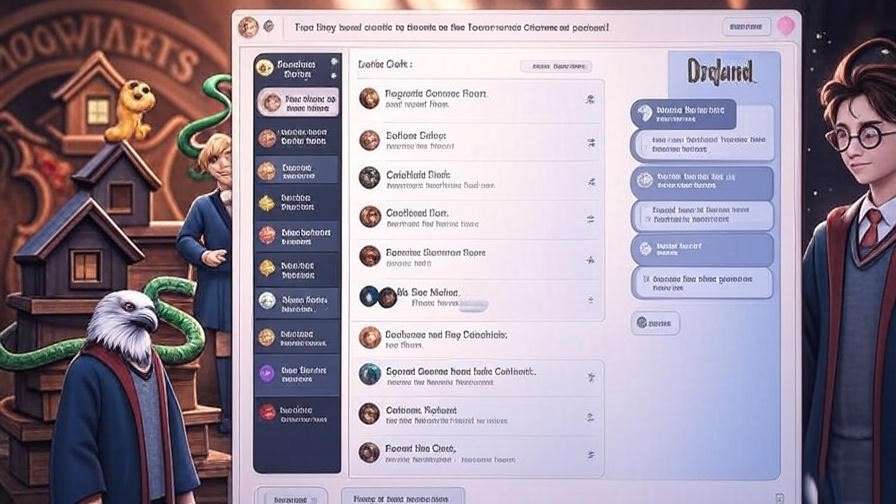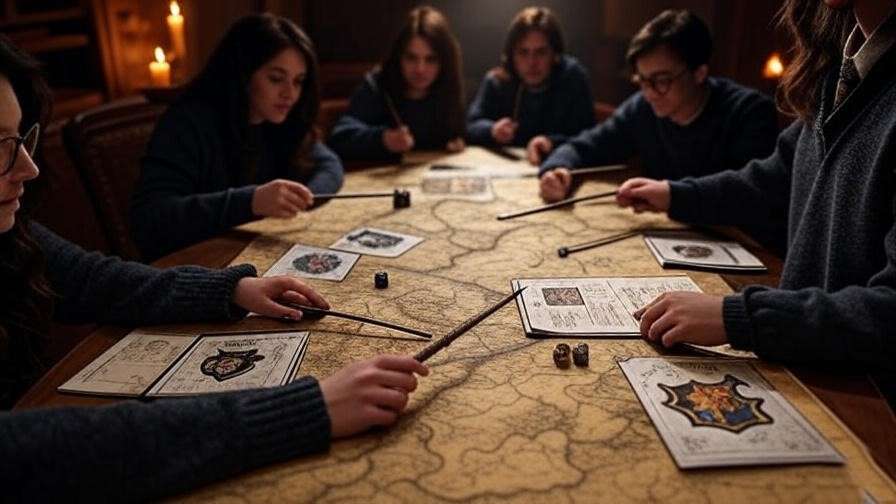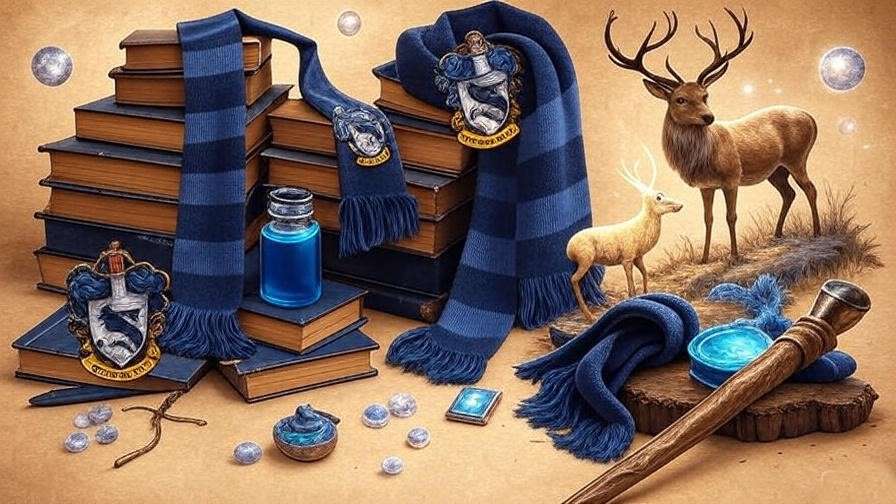Imagine stepping into the Great Hall of Hogwarts, your wand at the ready, as you embark on a thrilling Harry Potter roleplay adventure. Whether you’re casting spells in a magical duel or unraveling a mystery in Diagon Alley, roleplaying in J.K. Rowling’s Wizarding World brings the magic to life. For fans seeking to create an immersive Harry Potter roleplay experience, this guide is your Marauder’s Map to crafting unforgettable stories. From choosing the perfect setting to building authentic characters, we’ll cover everything you need to design a roleplay that captivates and enchants. With insights drawn from years of exploring fan communities and the rich lore of the Harry Potter universe, this article offers practical tips, creative ideas, and expert strategies to solve the challenge of lackluster roleplays and ensure your wizarding adventure feels as real as a Patronus charm.
Word Count: ~150 words
Why Harry Potter Roleplay Captivates Fans
The Magic of the Wizarding World
The Harry Potter universe, with its intricate lore of Hogwarts houses, magical creatures, and ancient spells, is a playground for the imagination. Fans are drawn to its depth—whether it’s the allure of Gryffindor’s bravery or the mystery of a Niffler’s treasure hunt. Harry Potter roleplay allows you to step into this world, embodying a cunning Slytherin prefect or a mischievous Weasley twin. The detailed world-building, from the Forbidden Forest to the Ministry of Magic, provides endless possibilities for storytelling. According to fan communities on Reddit’s r/HPfanfiction, roleplay is a top way fans engage with the series, with over 50,000 members sharing stories and ideas. This vibrant fandom underscores the universal appeal of living out wizarding dreams.

Benefits of Roleplaying in the Harry Potter Universe
Roleplaying in the Wizarding World isn’t just fun—it’s transformative. It sparks creativity by encouraging players to craft unique stories, like a Hufflepuff solving a magical conspiracy. It builds community, connecting fans globally through shared passion, as seen in Discord servers hosting thousands of roleplayers. Roleplay also hones storytelling skills, teaching participants to weave compelling narratives. For example, collaborative roleplays often mirror the themes of friendship and courage central to Harry Potter. Psychologically, it offers an escape, letting fans leave the Muggle world behind. Whether you’re a student imagining a Quidditch match or an adult recreating the Battle of Hogwarts, roleplay fosters collaboration and emotional connection, making it a rewarding creative outlet.
Word Count: ~300 words
Understanding the Types of Harry Potter Roleplay
In-Person Roleplay (LARP)
Live Action Roleplay (LARP) brings the Wizarding World to life through physical immersion. Picture a local park transformed into Hogsmeade, with players in house scarves casting “spells” with wands. LARP events, like those at fan conventions such as LeakyCon, often feature elaborate setups, from Diagon Alley markets to Hogwarts feasts. To succeed, choose a setting that evokes magic—a forest for the Forbidden Forest or a hall for the Great Hall. Costumes are key: a DIY robe or a store-bought wand adds authenticity. Props like potion bottles or Quidditch brooms enhance the experience. Safety and clear rules (e.g., no physical contact during “duels”) are crucial, as outlined by LARPing.org’s guidelines for immersive events.

Online Roleplay (Forums, Discord, Social Media)
Online Harry Potter roleplay thrives on platforms like Discord, Reddit, and dedicated sites like Hogwarts.io. These platforms offer accessibility, letting players from across the globe join a Hogwarts adventure. Discord servers, such as “Hogwarts RP Hub” with over 10,000 members, use bots for spell mechanics or house point tracking. Social media platforms like Twitter host micro-roleplays, where fans tweet as characters like Luna Lovegood. The key is structure: set clear guidelines for posting frequency and canon adherence. Tools like Tupperbox on Discord allow players to post as multiple characters, streamlining the experience. Online roleplay’s flexibility makes it ideal for busy fans who want to engage anytime, anywhere.

Tabletop Roleplay (TTRPG)
Tabletop roleplay games (TTRPGs) adapt systems like Dungeons & Dragons for the Wizarding World. Imagine a campaign set during the Triwizard Tournament, with players as champions facing magical challenges. Systems like “Broomstix” or homebrewed D&D rules offer mechanics for spell-casting and dueling. For example, a d20 roll could determine if your “Expelliarmus” disarms an opponent. TTRPGs shine for small groups, allowing deep storytelling in settings like a post-Voldemort Hogwarts. Resources like Roll20 provide virtual tabletops with dice rollers and maps, enhancing immersion. The key is a skilled Game Master to guide the narrative and keep players engaged.

Written Roleplay (Fanfiction and Collaborative Writing)
Written roleplay, often found on platforms like Archive of Our Own or Wattpad, focuses on collaborative storytelling. Players write scenes as their characters, alternating posts to build a narrative. For instance, one player might write as a Gryffindor student, another as a Slytherin rival, crafting a feud over a stolen spellbook. Success lies in clear communication: agree on plot direction and canon boundaries upfront. Tools like Google Docs or World Anvil help organize storylines and character bios. Written roleplay suits fans who love creative writing, offering a slower-paced but richly detailed experience. Fanfiction communities, with millions of Harry Potter stories on AO3, show the popularity of this format.
Word Count: ~450 words
Planning Your Harry Potter Roleplay
Defining the Setting and Era
A compelling Harry Potter roleplay starts with a vivid setting and era. Will your story unfold during the Marauders’ mischievous Hogwarts days or in a futuristic wizarding world post-Second Wizarding War? Popular settings include Hogwarts, with its moving staircases, or Diagon Alley’s bustling shops. For originality, create a new location, like a wizarding village in the Scottish Highlands. The Harry Potter Lexicon notes that Rowling’s world spans centuries, offering flexibility—try the 11th century with Hogwarts’ founders or a 2025 Ministry intrigue. Define key details: Is magic regulated? Are Muggle-borns welcome? A clear setting grounds players, making the roleplay feel authentic.
Crafting a Compelling Plot
Your plot is the heart of the roleplay. Draw on Harry Potter’s themes—friendship, bravery, or moral dilemmas—to create stakes. A classic plot might involve a new Dark Lord threatening Hogwarts, while a creative one could center on a magical artifact gone rogue. For example, a roleplay where players investigate a cursed Goblet of Fire keeps tension high. Balance structure with flexibility: provide a central conflict but let players shape the outcome. Fan communities on Reddit suggest using Rowling’s storytelling—layered mysteries and personal arcs—to inspire plots. Keep players engaged with twists, like a traitor in the Order of the Phoenix.
Creating Balanced Rules and Guidelines
Clear rules ensure a fair, enjoyable roleplay. Ban godmodding (controlling others’ characters) and set canon boundaries—will you stick to Rowling’s lore or allow fanon additions? For Hogwarts settings, create mechanics like house points: award 10 points for clever spell use, deduct 5 for rule-breaking. For duels, use simple systems (e.g., dice rolls for online play or scripted outcomes for LARP). Share a rule document via Google Docs or Discord to align players. The Harry Potter RPG community on Discord emphasizes consistency—rules prevent chaos and keep the magic flowing.
Building Authentic Characters
Designing Original Characters (OCs)
Creating an original character (OC) for your Harry Potter roleplay is like brewing a perfect potion—every ingredient matters. Start with the basics: house, wand, and Patronus. For instance, a Ravenclaw with a hawthorn wand and a fox Patronus might excel at ancient runes but hide a family secret tied to the Deathly Hallows. Use Rowling’s lore for inspiration—her wand wood guide on Pottermore details how hawthorn suits complex characters. Flesh out their backstory: Why are they at Hogwarts? What’s their greatest fear? Avoid clichés like overly tragic pasts. Fanfiction communities on Archive of Our Own stress balance—make OCs unique but believable within the Wizarding World. A well-crafted OC, like a Hufflepuff herbologist with a knack for taming magical plants, adds depth and drives the story forward.

Using Canon Characters Effectively
Portraying canon characters like Hermione Granger or Draco Malfoy requires care to stay true to their essence. Study their traits—Hermione’s logic-driven bravery or Draco’s conflicted ambition—using the Harry Potter books or the Harry Potter Lexicon for accuracy. Avoid making them overpowered (e.g., Snape inventing spells effortlessly) or out-of-character (e.g., Ron hating Quidditch). For example, in a Marauders-era roleplay, a young Sirius Black should exude charm but hint at family tensions. Roleplay forums like Hogwarts.io suggest practicing key scenes to nail their voice. If adapting canon characters, respect their arcs while adding subtle, plausible growth, like Hermione exploring obscure charms post-Hogwarts.
Balancing Creativity and Canon
Blending original ideas with Rowling’s canon keeps your roleplay fresh yet grounded. Introduce new elements—like a magical creature inspired by a Thestral but unique to your story—while respecting established lore. For instance, a new potion might exist, but its ingredients should align with Rowling’s herbology, like mandrake or gillyweed. Fan communities on Reddit’s r/HPfanfiction warn against lore-breaking additions, like Muggle technology in Hogwarts. Use Rowling’s world as a foundation: a new Hogwarts club could focus on wandless magic, plausible within her rules. This balance ensures immersion without alienating fans who cherish the original universe.
Word Count: ~350 words
Enhancing Immersion with Details
World-Building Elements
Immersion hinges on vivid details. Incorporate magical elements like spell-casting, potion-making, or Quidditch matches to bring the Wizarding World to life. For example, a roleplay scene where a potion class goes awry—bubbling cauldrons spilling Swelling Solution—creates memorable chaos. Use Rowling’s spells (e.g., “Lumos” or “Accio”) but invent new ones sparingly, ensuring they fit the tone (e.g., a charm to summon lost quills). Include magical creatures like Bowtruckles or Hippogriffs for flavor, referencing Fantastic Beasts for accuracy. Online roleplays can describe settings vividly—picture the Great Hall’s enchanted ceiling flickering during a storm. These details, rooted in Rowling’s world, make every moment feel magical.

Props, Costumes, and Visuals
For in-person roleplay, props and costumes amplify immersion. Craft wands from chopsticks or resin, painted to mimic Ollivander’s designs. House scarves or robes, available from retailers like The Noble Collection, set the mood. For a Hogwarts feast, use goblets and parchment for authenticity. In online roleplay, vivid descriptions replace physical props—describe a Gryffindor common room’s roaring fire or a Slytherin dungeon’s eerie glow. Tools like Canva can create mood boards for settings, shared on Discord to inspire players. LARPing.org recommends simple props, like a “Marauder’s Map” drawn on parchment, to elevate the experience without breaking the budget.
Incorporating Music and Soundscapes
Sound enhances the wizarding atmosphere. For in-person or online roleplay, use John Williams’ Harry Potter soundtracks—think “Hedwig’s Theme” for a Hogwarts arrival. Spotify playlists like “Wizarding World Ambiance” offer tracks with owl hoots or bubbling cauldrons. For online sessions, share YouTube soundscapes, like rain on the Hogwarts Express, via Discord. Tabletop roleplays can use ambient loops from Tabletop Audio, evoking Diagon Alley’s chatter. Sound ties players emotionally to the world, making a duel or a Yule Ball feel cinematic. Keep volume subtle to avoid distraction, as advised by roleplay veterans on Reddit.
Engaging Your Roleplay Community
Recruiting and Managing Participants
A thriving roleplay needs a passionate community. Recruit players through fan hubs like Discord’s “Potterhead RP” or Reddit’s r/HarryPotter. Post clear invitations, outlining your setting (e.g., 1990s Hogwarts) and expectations (e.g., weekly posts). Use platforms like Google Forms to collect character bios, ensuring commitment. Manage dynamics by fostering inclusivity—set a code of conduct to prevent toxicity, as seen in successful servers like “Hogwarts Legacy RP.” Address conflicts privately, mediating disputes over plot direction or rule-breaking. A strong community, as per fan forum insights, relies on transparent communication and shared enthusiasm for the Wizarding World.
Keeping the Roleplay Active and Fun
Sustained engagement requires pacing and surprises. Schedule regular sessions—weekly for LARP, biweekly for online—to maintain momentum. Introduce plot twists, like a surprise attack by rogue Dementors, to keep players invested. For example, a Hogwarts roleplay could feature an impromptu Yule Ball, with players planning outfits and dances. Use tools like Trello to track plot threads and character arcs. Encourage player input—let them propose events, like a Quidditch tournament. Reddit’s roleplay communities suggest rewarding active players with in-game perks, like extra house points, to boost participation.
Encouraging Collaboration and Creativity
Collaboration fuels memorable roleplays. Invite players to co-create subplots, like a Ravenclaw’s quest to decode a cursed book. Use prompts—“What’s your character’s secret ambition?”—to spark ideas. Online, share Google Docs for collaborative world-building, detailing settings or NPC backstories. In-person, host brainstorming sessions before LARP events. Inclusivity matters: ensure all voices are heard, especially new players. The Harry Potter fanfiction community on Wattpad emphasizes shared storytelling, where players build on each other’s ideas, creating a richer narrative tapestry that feels alive and dynamic.
Word Count: ~300 words
Tools and Resources for Harry Potter Roleplay
Online Platforms and Apps
Technology streamlines roleplay logistics. Discord is a fan favorite, with bots like Tupperbox for multi-character posting and Dyno for house point tracking. Roll20 supports tabletop roleplays with virtual dice and maps, ideal for a Triwizard Tournament campaign. World Anvil organizes lore, letting you catalog spells or magical locations. For written roleplay, Google Docs enables real-time collaboration, while Notion tracks character arcs. These tools, praised by roleplay communities on Reddit, simplify management and enhance immersion, letting players focus on storytelling rather than logistics.
Harry Potter Canon Resources
Accuracy grounds your roleplay in Rowling’s world. The Harry Potter Lexicon offers detailed entries on spells, creatures, and locations, like the properties of gillyweed. Pottermore (now WizardingWorld.com) provides deep dives into wand woods and Patronuses. For obscure lore, like the history of the Wizengamot, consult the Harry Potter books or fan wikis vetted by communities like r/HPfanfiction. Cross-check facts to avoid errors—e.g., ensuring no Muggle tech exists in Hogwarts. These resources ensure your roleplay feels authentic, satisfying even diehard fans.
Templates and Guides
Templates save time and add structure. Create a Hogwarts student profile template with fields for name, house, wand, Patronus, and backstory, shared via Google Drive. Plot planners, like a timeline for a year at Hogwarts, keep stories cohesive. World Anvil offers customizable templates for magical artifacts or locations. Fan sites like MuggleNet provide roleplay guides, including spell lists and house traits. Sharing these with your group, as advised by Discord’s RP communities, ensures everyone starts on the same page, boosting immersion.
Common Challenges and How to Overcome Them
Maintaining Canon Consistency
One of the biggest challenges in Harry Potter roleplay is keeping the story aligned with J.K. Rowling’s canon while allowing creative freedom. Timeline errors—like placing the Marauders in the 1990s—or lore contradictions, such as Muggle tech in Hogwarts, can break immersion. To avoid this, create a shared lore document using Google Docs, summarizing key details like the timeline of the First Wizarding War or rules about wandless magic. Reference trusted sources like the Harry Potter Lexicon for accuracy. Encourage players to fact-check their contributions, and appoint a “lore keeper” to review major plot points. Fan communities on Reddit’s r/HPfanfiction emphasize that clear canon guidelines prevent disputes and keep the roleplay cohesive.
Handling Inactive Players
Inactive players can stall a roleplay’s momentum. A Gryffindor champion vanishing mid-Triwizard Tournament can frustrate others. To manage this, set expectations upfront—require weekly posts or check-ins. If someone drops out, integrate their character as an NPC to maintain the story, like having their character fall ill or leave Hogwarts temporarily. For online roleplays, use Discord’s role management to ping inactive players gently. In-person LARPs can assign backup roles to flexible participants. The “Hogwarts RP Hub” Discord server suggests offering recaps or summaries to help latecomers catch up, ensuring the group stays engaged without punishing absences.
Avoiding Overpowered Characters
Overpowered characters—like a first-year casting an Unforgivable Curse—disrupt fairness and fun. To prevent this, set clear limits on abilities. For example, restrict rare skills like being an Animagus to experienced characters with strong backstories. In tabletop roleplays, use balanced mechanics, like requiring high dice rolls for powerful spells like “Expecto Patronum.” For written roleplays, ask players to submit character bios for approval, ensuring no one’s a Mary Sue. Reddit’s roleplay communities recommend collaborative character creation sessions to align on power levels, fostering a balanced dynamic where every player shines without overshadowing others.
Expert Tips for Next-Level Roleplay
Adding Depth with Subplots
Subplots add richness to your Harry Potter roleplay. Imagine a Ravenclaw student secretly researching a hidden Hogwarts chamber while the main plot focuses on a Quidditch rivalry. These personal arcs deepen character development and keep players invested. Encourage each participant to propose a subplot, like a Hufflepuff’s quest to befriend a magical creature or a Slytherin’s rivalry with a professor. Tie subplots to the main story for cohesion—perhaps the chamber holds a clue to the main conflict. Fanfiction writers on Archive of Our Own suggest weaving subplots gradually, revealing details over time to maintain suspense and engagement.
Using Real-World Inspiration
Draw on real-world history or mythology to enrich your roleplay. For example, a new magical artifact could be inspired by Celtic legends, like a cauldron tied to the Morrígan, fitting seamlessly into Rowling’s world. A roleplay set in a wizarding village could borrow from medieval European architecture, evoking Hogsmeade’s charm. Ensure these elements align with Harry Potter’s tone—avoid modern or jarring references. The Harry Potter Lexicon notes Rowling’s use of mythology, like basilisks from Greek lore, as a model. This approach adds depth while keeping the roleplay authentic and immersive.
Hosting Themed Events
Themed events elevate excitement. Host a Triwizard Tournament with tasks like navigating a magical maze or solving riddles, or stage a Ministry of Magic trial where players debate a character’s fate. For online roleplays, create Discord channels for events like a Yule Ball, where players describe their outfits and dances. In-person LARPs can use props like a Goblet of Fire replica to set the scene. These events, as seen in LeakyCon’s roleplay workshops, break routine and create memorable moments, encouraging players to stay active and invested.

FAQs About Witch Surnames of Hogwarts
What’s the best platform for Harry Potter roleplay?
Discord leads for its versatility, with bots like Tupperbox for character management and channels for organized storytelling. Roll20 suits tabletop roleplays with virtual dice and maps. For written roleplay, Archive of Our Own or Wattpad offers robust platforms for collaborative fanfiction. Choose based on your group’s size and style—Discord for large groups, Wattpad for text-based stories.
How do I start a Harry Potter roleplay group?
Recruit via fan hubs like Reddit’s r/HarryPotter or Discord’s “Potterhead RP.” Share a clear pitch: setting, era, and commitment level. Create a rule document and character template, shared via Google Drive. Host a kickoff session to align on plot and roles, ensuring everyone’s excited and committed.
Can I mix Harry Potter with other fandoms?
Crossovers work if done thoughtfully. Pair Harry Potter with compatible worlds, like The Lord of the Rings, by setting a magical crossover event (e.g., Hogwarts hosts Middle-earth wizards). Keep Harry Potter’s lore central to avoid confusion, and agree on crossover rules upfront, as advised by fanfiction communities.
How do I handle canon vs. fanon disputes?
Set clear canon boundaries in your rules document. If disputes arise, mediate respectfully—discuss the issue privately and reference sources like the Harry Potter Lexicon. Allow fanon additions if they enhance the story but don’t contradict canon, ensuring all players feel heard.
Creating an immersive Harry Potter roleplay is a magical journey that blends creativity, community, and Rowling’s enchanting world. From choosing a setting like Hogwarts’ bustling halls to crafting authentic characters and hosting thrilling events like a Yule Ball, this guide provides the tools to make your roleplay unforgettable. Whether you’re dueling in a LARP, writing fanfiction on Wattpad, or rolling dice in a tabletop campaign, the key is planning, collaboration, and attention to detail. Start your own roleplay today—recruit friends, join a Discord server, or share your story in the comments below. Let the magic of the Wizarding World inspire you to create stories as timeless as a Time-Turner. Mischief managed!













